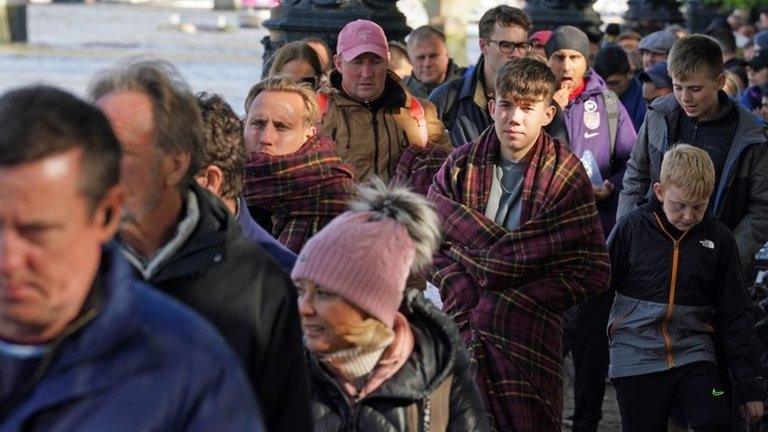Study reveals impact of Queen's death on nation
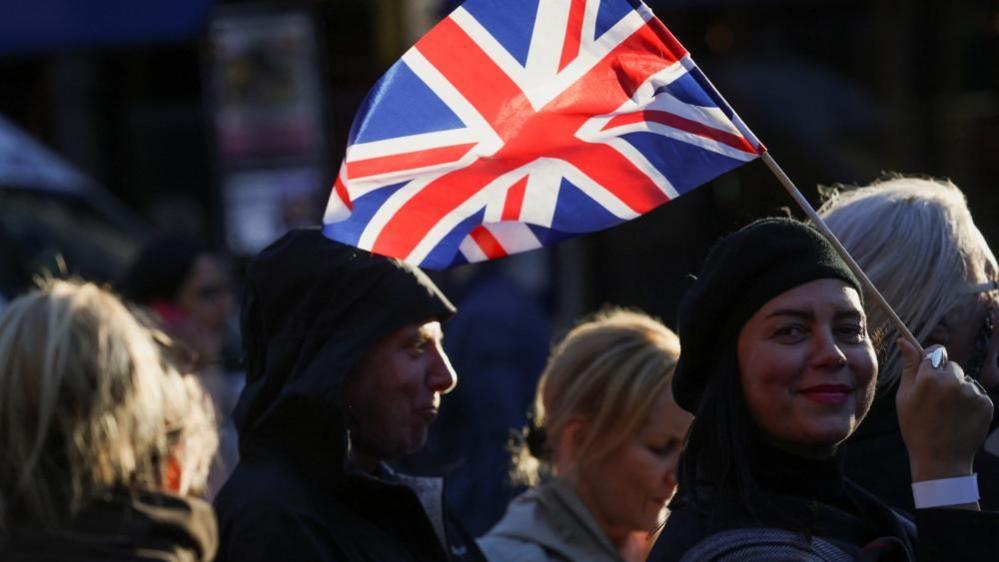
Queen Elizabeth II's death on 8 September 2022 was marked by a 10-day period of mourning
- Published
Psychologists suggest that research carried out after Queen Elizabeth II died shows that many people want the monarchy to "maintain its place" in Britain.
Academics from several universities, which included The Open University based in Milton Keynes, questioned people who took part in "mourning events" in Edinburgh and London after she died two years ago.
They found that: "Throughout the data, what ‘hums’ in the backdrop of the discussion... is the position that the monarchy should maintain its place in the future of the British nation."
Their article, in the British Journal of Social Psychology, external, argued that the monarchy is "constituted as Britishness".
Researchers said their aim was to explore how those attending national mourning events "navigated the rupture" created by her death on 8 September 2022 after 70 years on the throne.
Her death was marked by a 10-day period of mourning. During this time, more than 250,000 people queued to file past her coffin in Westminster Hall, a million attended the funeral procession, some 29 million people in the United Kingdom watched on television, and 4 billion watched worldwide.
"We see mourners articulate a clear link between national identity and the Queen as she ‘represented something of who we were’," said the article.
It added: "The monarchy is constituted as Britishness, and the loss of the monarch is a loss of Britishness [in ourselves as well as in the world]. You cannot have a future Britain without the preservation of the institution of monarchy."
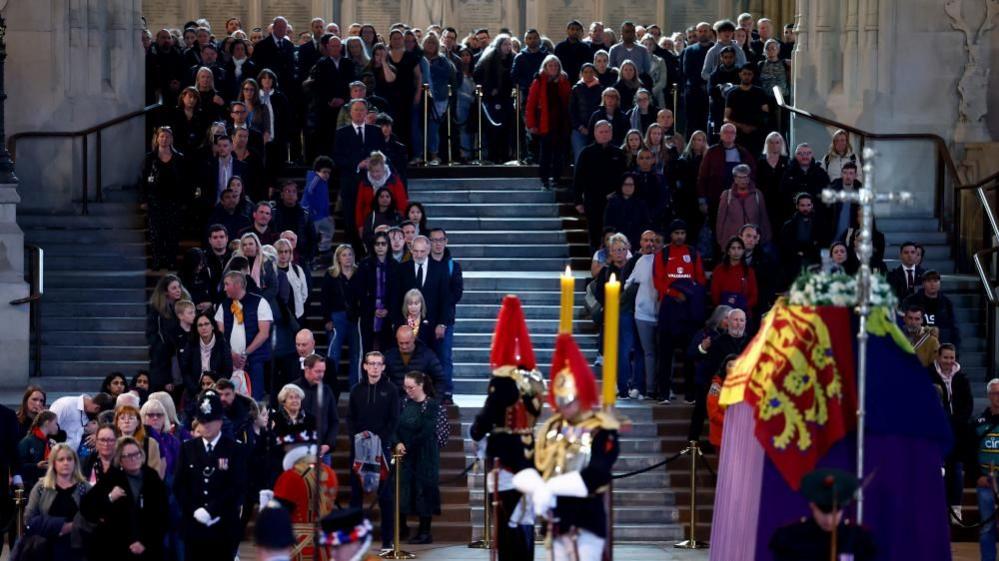
More than 250,000 people queued to file past the late Queen's coffin in Westminster Hall in London
Researchers said "much" of the British public "actively participated" in commemorating the late Queen's death.
"The significance of the event was evidenced by thousands and millions of mourners across the United Kingdom who participated in the national days of mourning in various ways.
"There are parallels that can be drawn between this modern phenomenon and a pre-modern one, pilgrimage."
'Moment of rupture'
Dr Sandra Obradović, an Open University psychology lecturer involved in the research, external, said: “When we think about crowds, we often think about the ‘disruptive’ one, the ones that come together to challenge the status quo.
“In this project, we had an opportunity to study a different kind of crowd, one that comes together to assert the status quo, something particularly important in a moment of rupture that opens a space for change.”
Researchers said they collected data from "122 participants in the context of 64 short interviews".
University academics from Keele, St Andrews, Heriott-Watt, Canterbury Christ Church, Sussex, Strathclyde, and Bath were also involved in the project.
Get in touch
Do you have a story suggestion for Beds, Herts & Bucks?
Follow Beds, Herts and Bucks news on BBC Sounds, Facebook, external, Instagram, external and X, external.
- Published8 September 2022
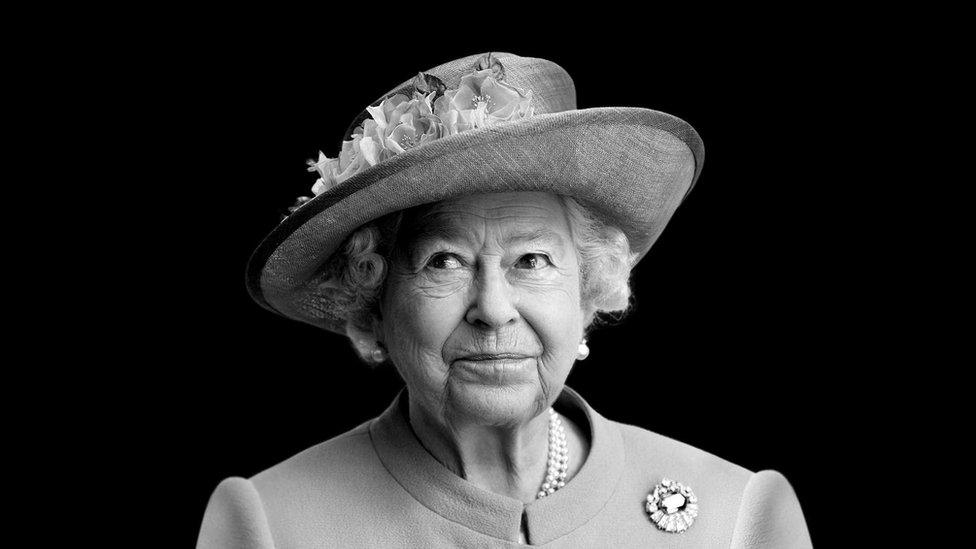
- Published18 May 2023
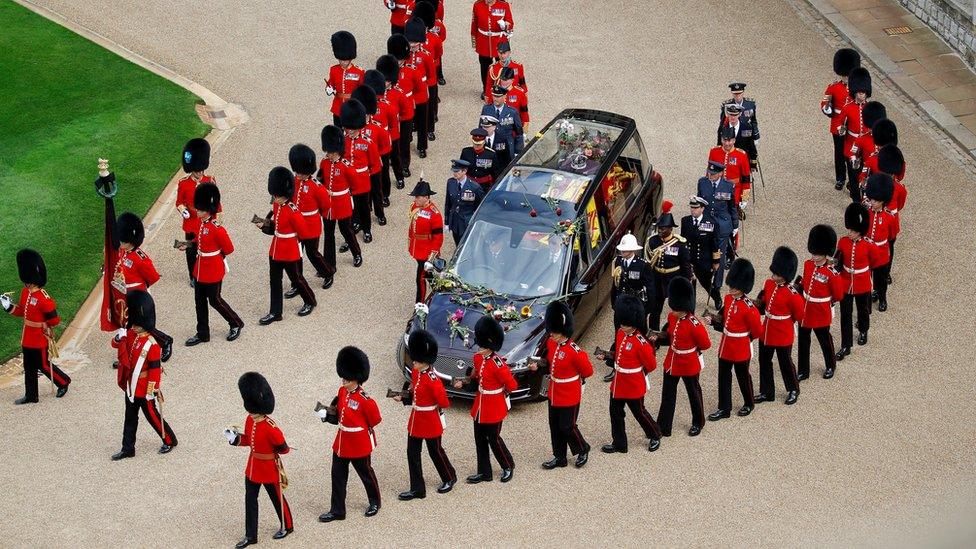
- Published19 September 2022
